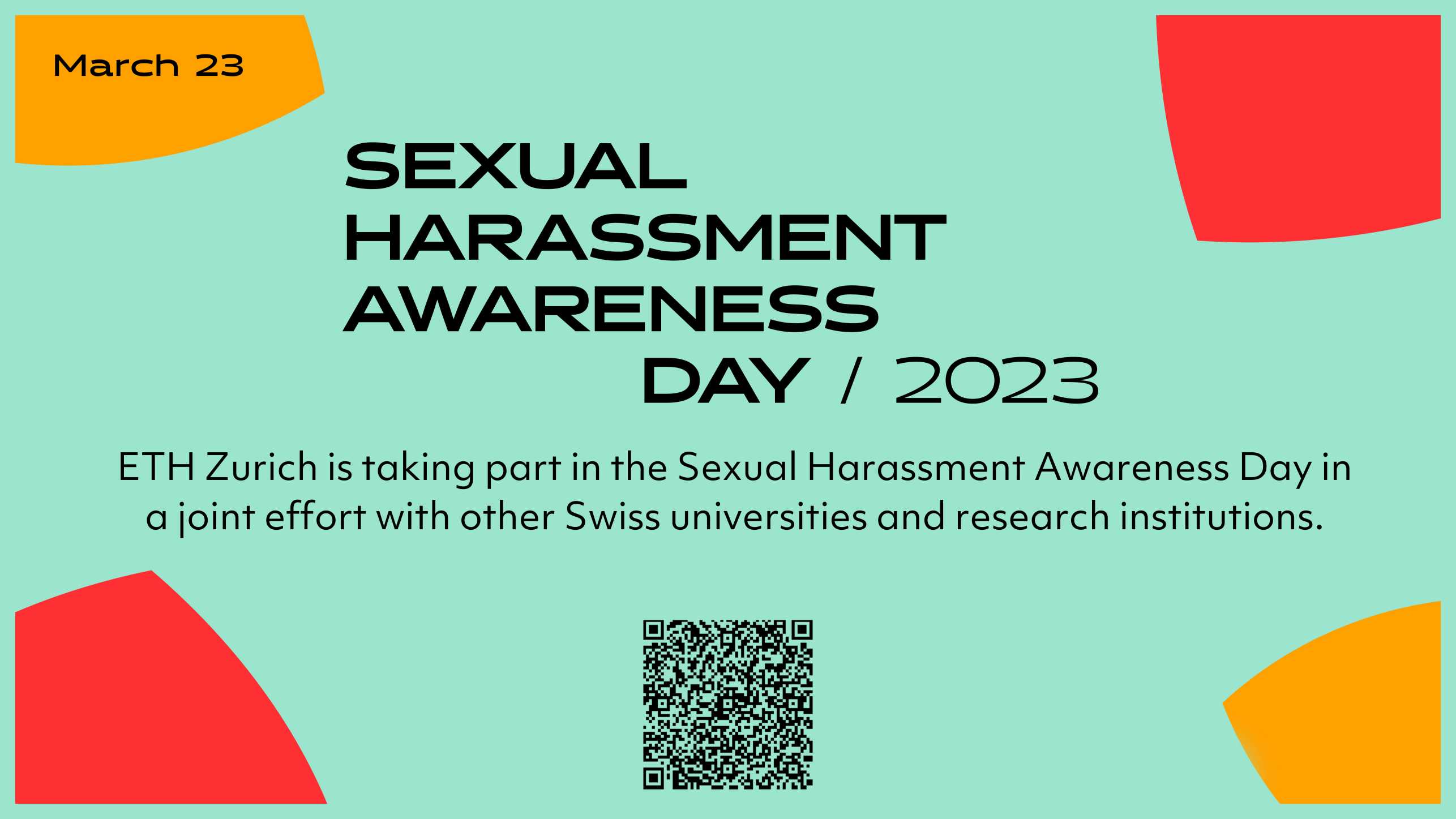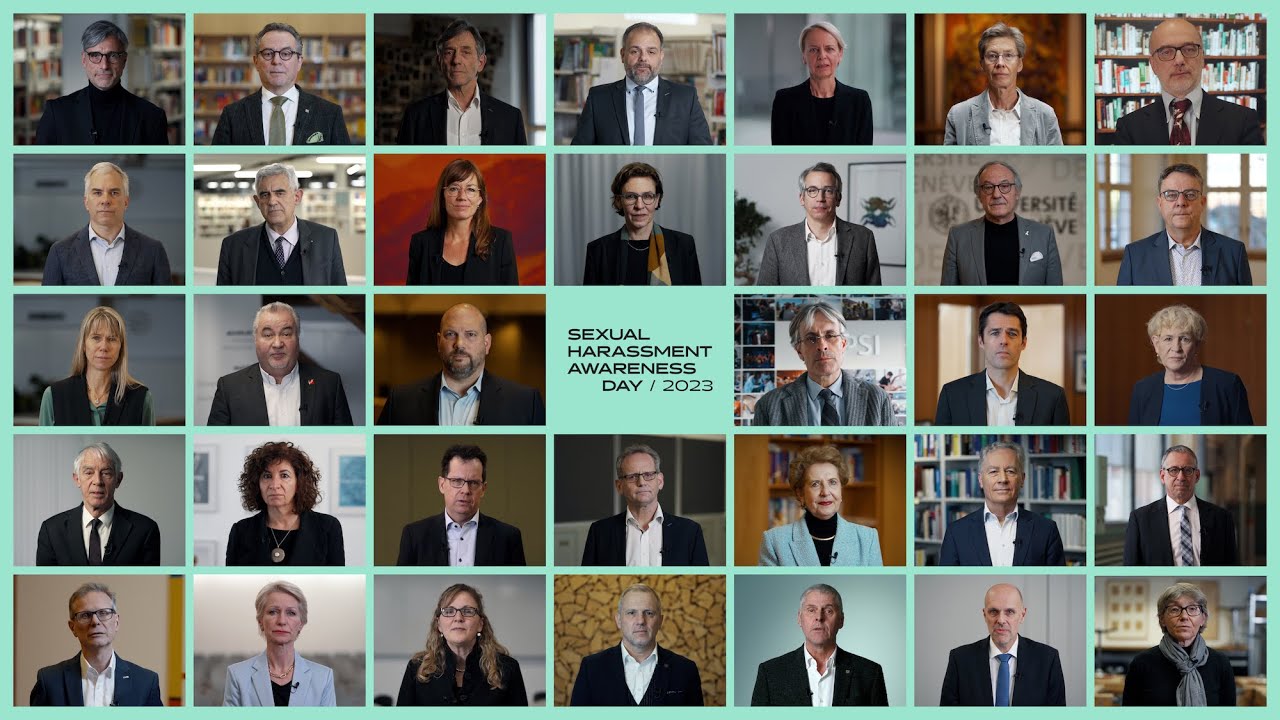Taking a stand against sexual harassment
Sexual Harassment Awareness Day will take place on 23 March. Universities and research institutions throughout Switzerland will for the first time campaign jointly for an environment without sexism and sexual harassment. ETH Zurich is also taking a stand to show that such transgressive behaviour will not be tolerated.
Sexism and sexual harassment are a reality in Swiss higher education. Circumstances such as temporary and therefore insecure employment conditions, relationships of dependency, hierarchical structures and a lack of diversity can foster sexism and sexual harassment.
It is for this reason that on 23 March 2023 Swiss universities, research institutions and university-related organisations will for the first time be campaigning jointly against transgressive behaviour during the nationwide “external pageSexual Harassment Awareness Day”.
Faster and better action
For the first time, higher education and research institutions throughout Switzerland are joining forces and campaigning jointly for a university culture in which sexism and sexual harassment have no place. “We wish to use this day to raise awareness of these issues – including at ETH Zurich,” says ETH Rector Günther Dissertori. “Relationships at universities are frequently shaped by power imbalances – such as in the case of the student–staff ratio. And power imbalances can foster abuse.”
A heightened perception and knowledge of possible courses of action are needed for sexual harassment to be combatted effectively. The “Sexual Harassment Awareness Day” aims to use a varied programme to enable more people to act faster and better, for example, by being able to identify sexual harassment better or approaching the relevant contact points.
Events to shed light and raise awareness
Events and campaigns concerning the issue are therefore being held online and on the premises of numerous universities on 23 March. Among others, relevant ETH offices are involved in the following two online events:
- The true costs of sexual harassment for all
What are the emotional and financial consequences of sexual harassment in the higher education and research sector? The presentation with Dr Bettina Palazzo, business ethics expert, and Dr Léïla Eisner and Dr Tabea Hässler from the Swiss LGBTIQ+ Panel will be moderated by ETH Diversity. - What is sexual harassment and where can I find support?
Stella Harper, co-founder and joint leader of the SpeakUpETH project, and Lilian Fankhauser, Co-Head of the Office for Equal Opportunities at the University of Bern, will shed light on these two important topics.
Full details of these and other events relevant for ETH members can be found on the ETH Diversity website.
Respect should always be an issue
But the issue of sexual harassment should not only be addressed on “Sexual Harassment Awareness Day”. “Treating each other with respect is the foundation of our community – and sexism and sexual harassment have no place here. Anyone who feels harassed in their working or learning environment has the right and various options to defend themselves,” says Nadia Dörflinger, Head of Diversity and Collaboration at ETH Zurich. There are contact and advice services available to both victims and witnesses of sexism and sexual harassment. All ETH members can make use of these services – confidentially and free of charge.

Difference between sexism and sexual harassment
Sexism refers to discrimination or prejudices due to a person’s gender. Sexism can be expressed in many forms, including stereotyping, discrimination at work, restrictions in education or health provision and other types of discriminatory treatment.
Sexual harassment refers to untoward sexual behaviour exercised towards another person. It can comprise comments of a sexual nature, inappropriate physical contact, sexual innuendos or other actions that cause a person to feel harassed or uncomfortable.
The decisive factor is the assessment of the person affected of whether they are suffering sexism or sexual harassment.
A free e-learning course contains useful examples to give ETH members an understanding of the issue.

